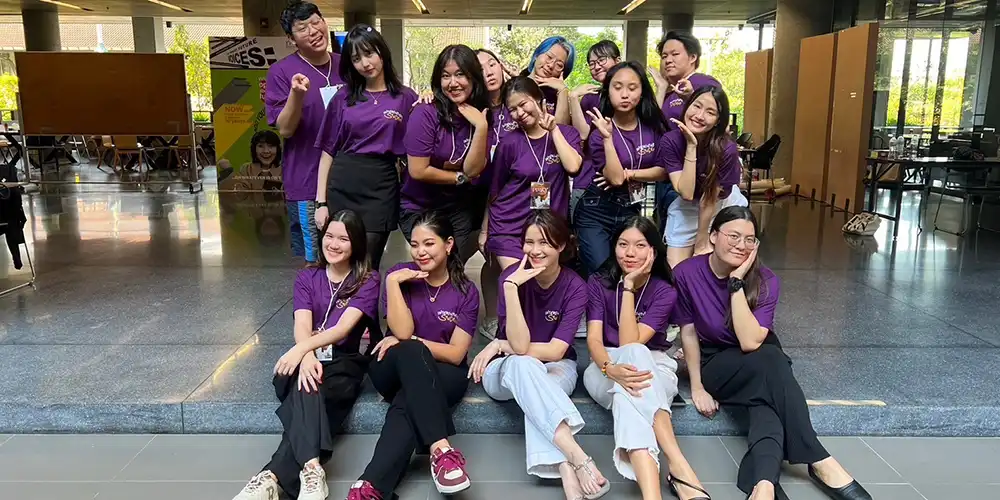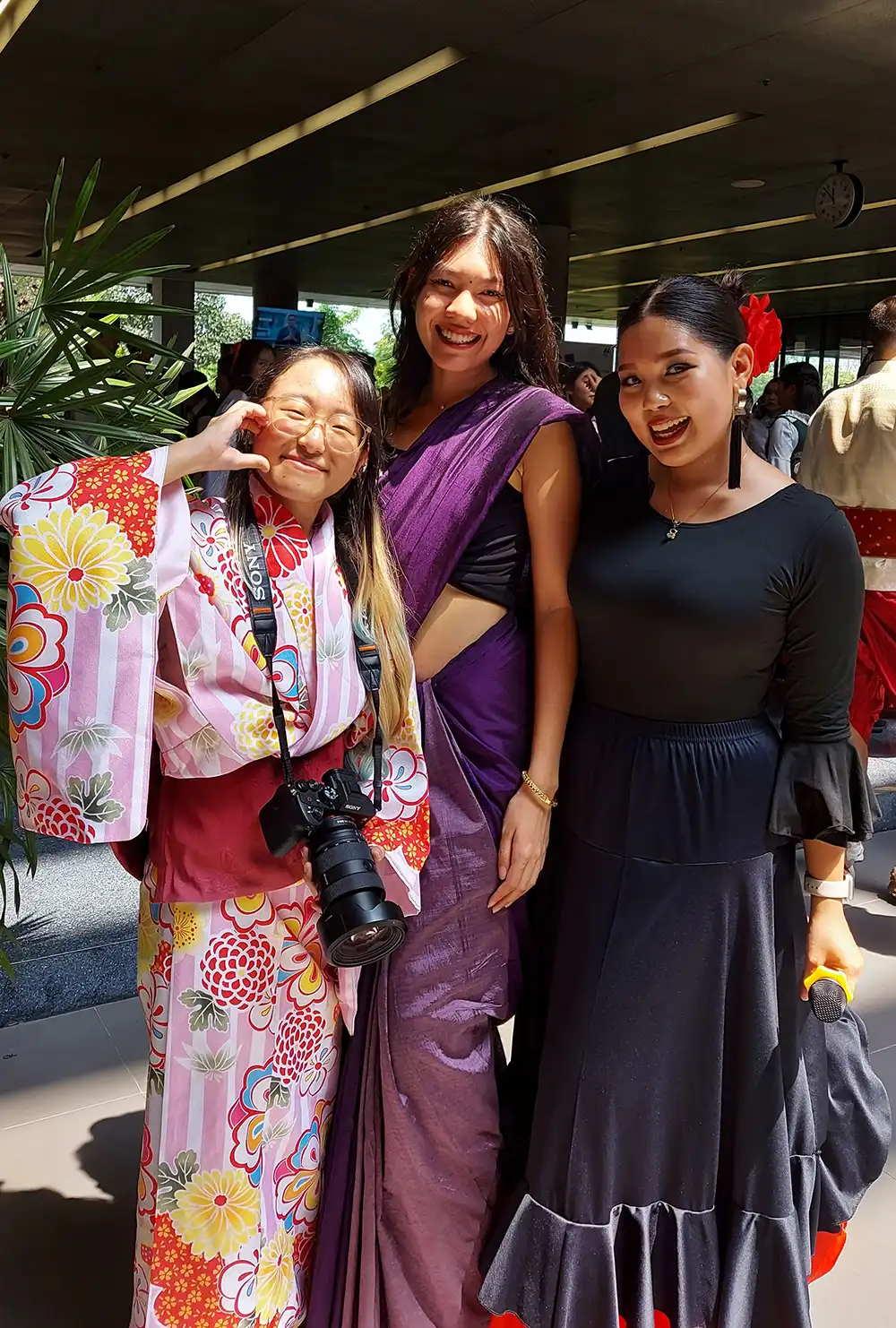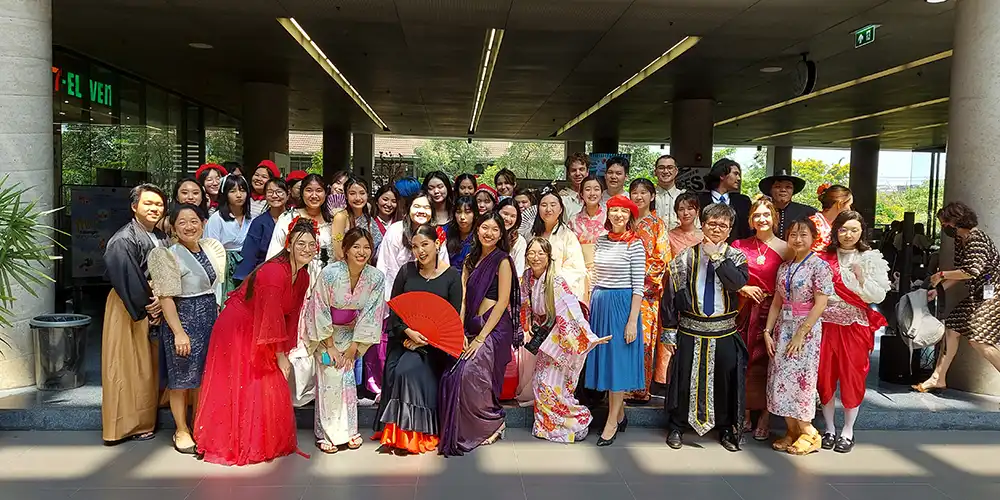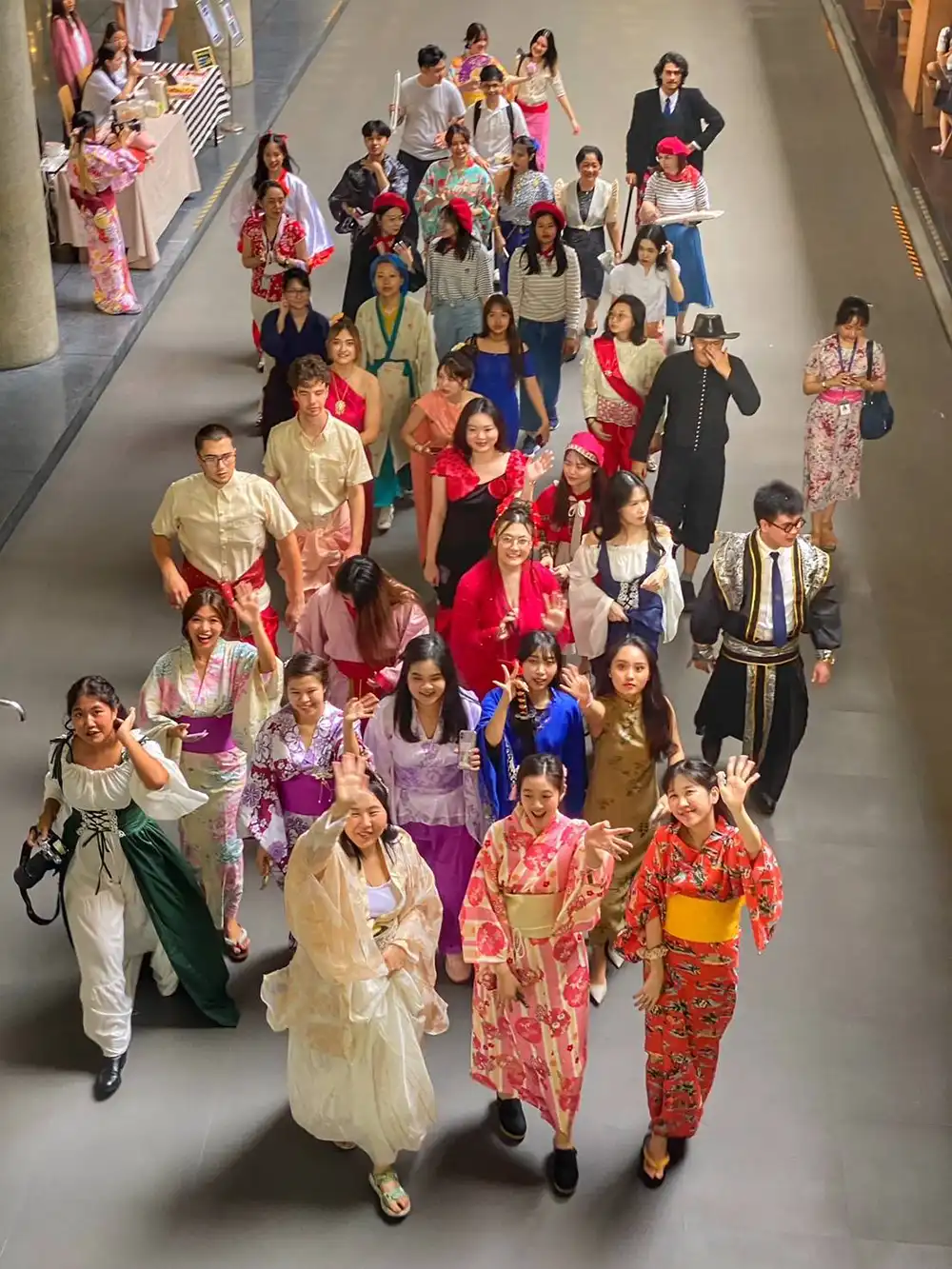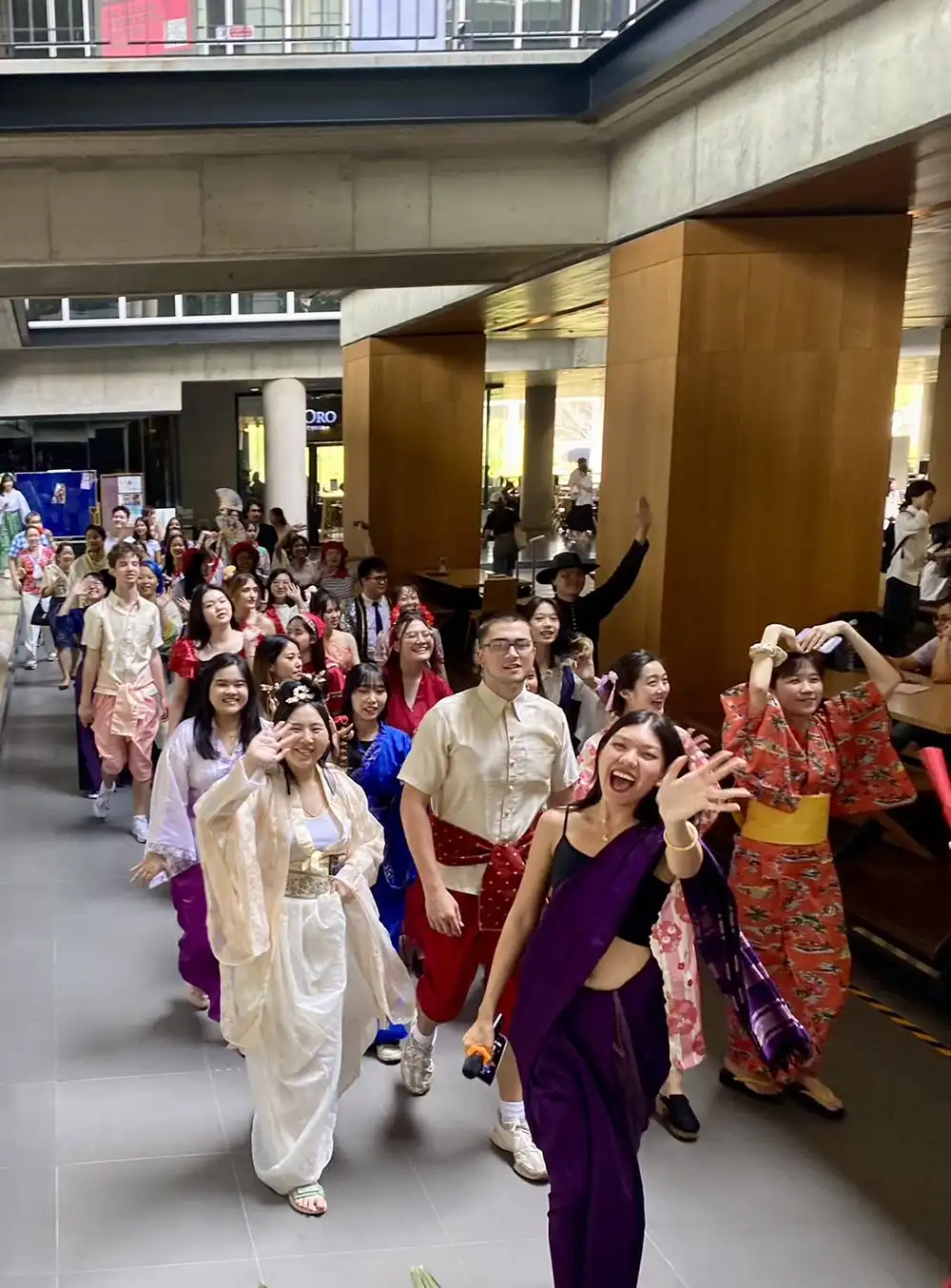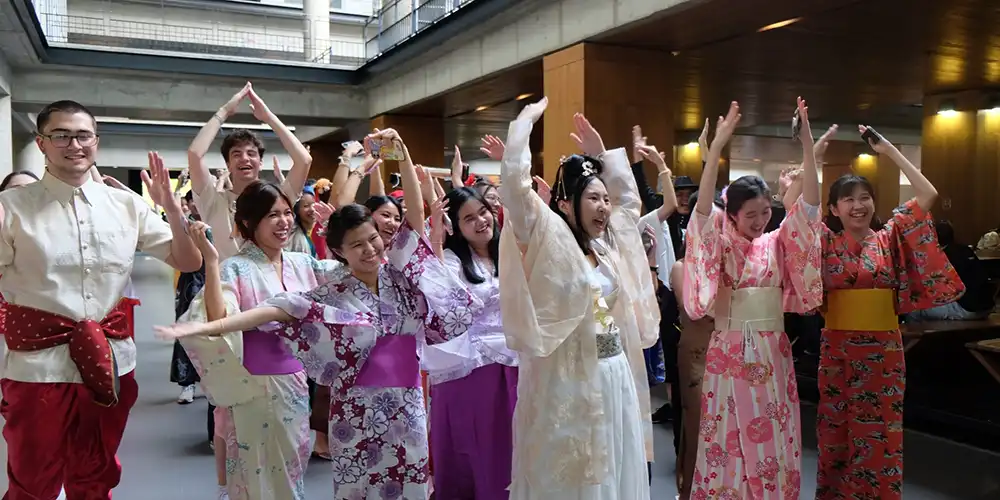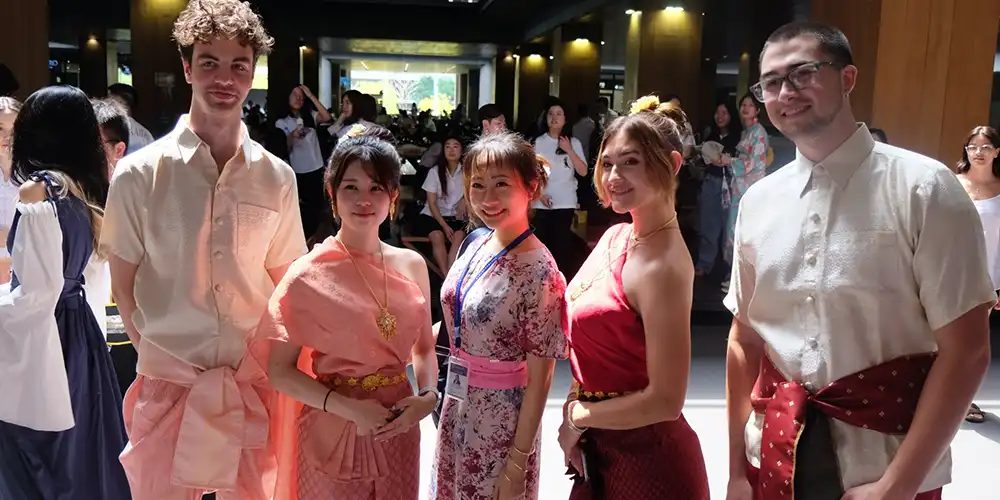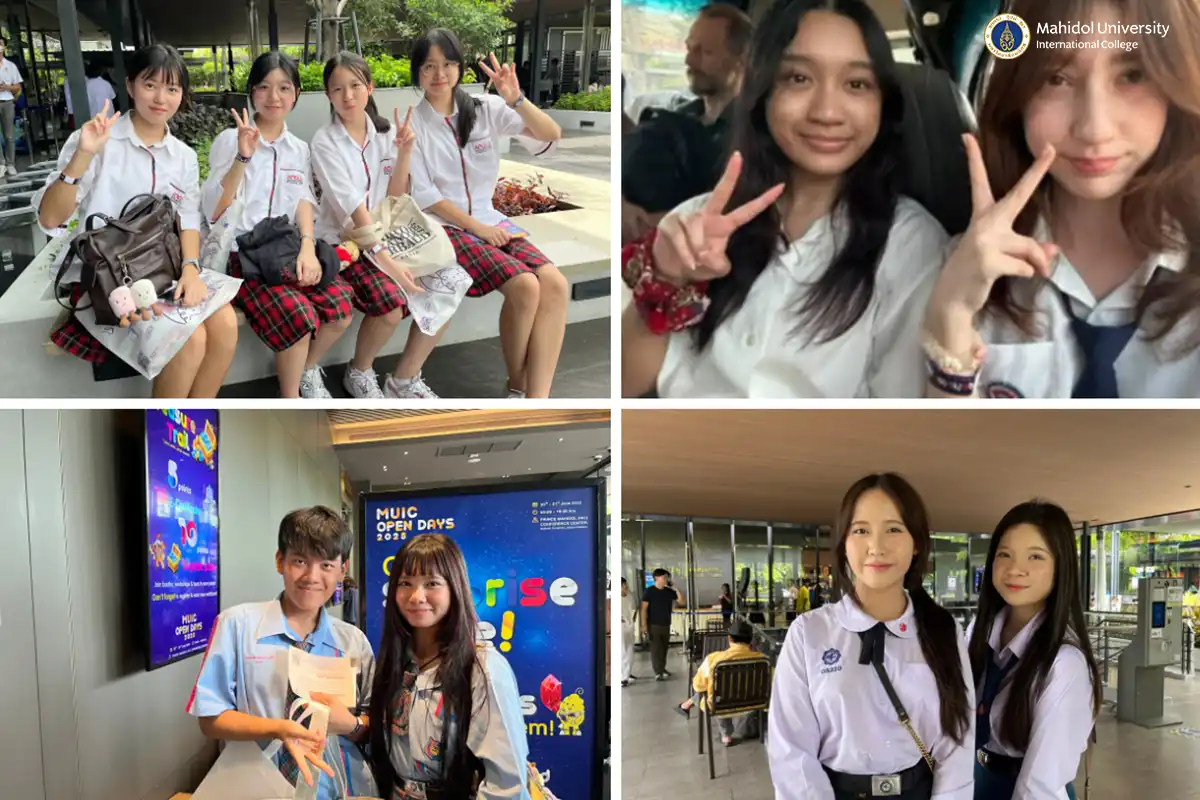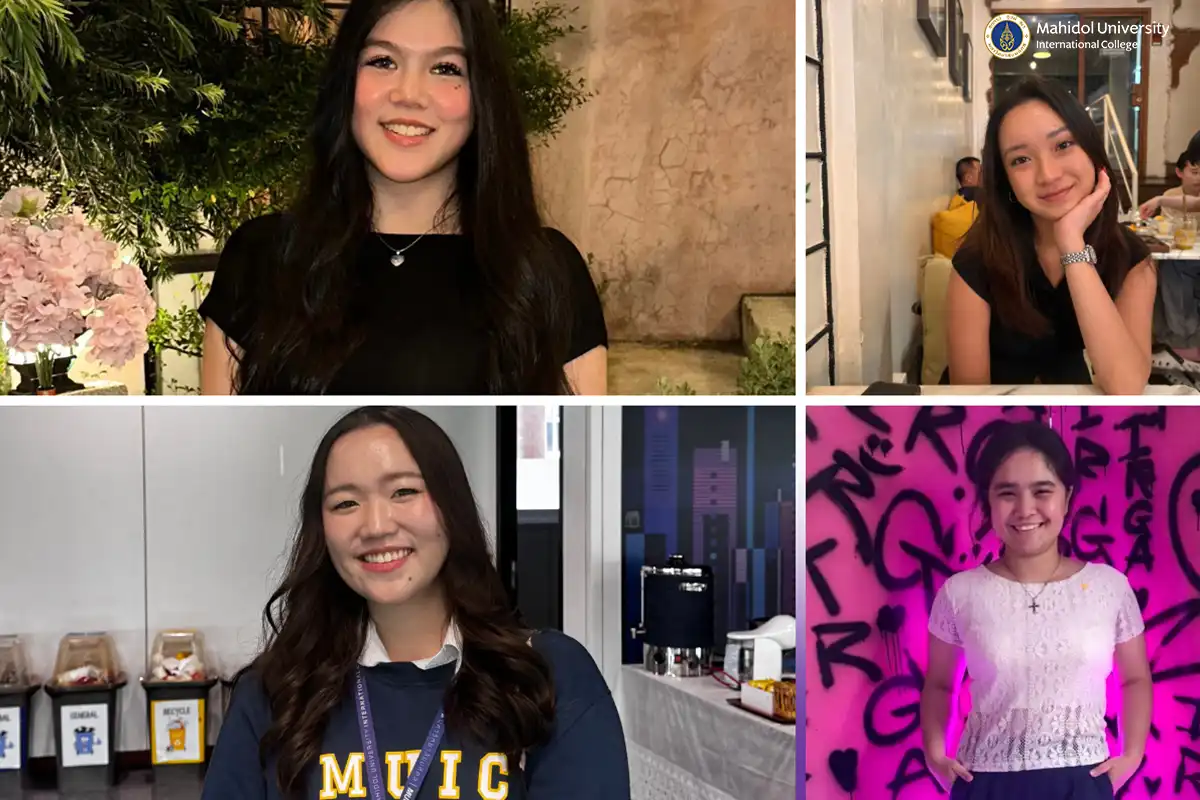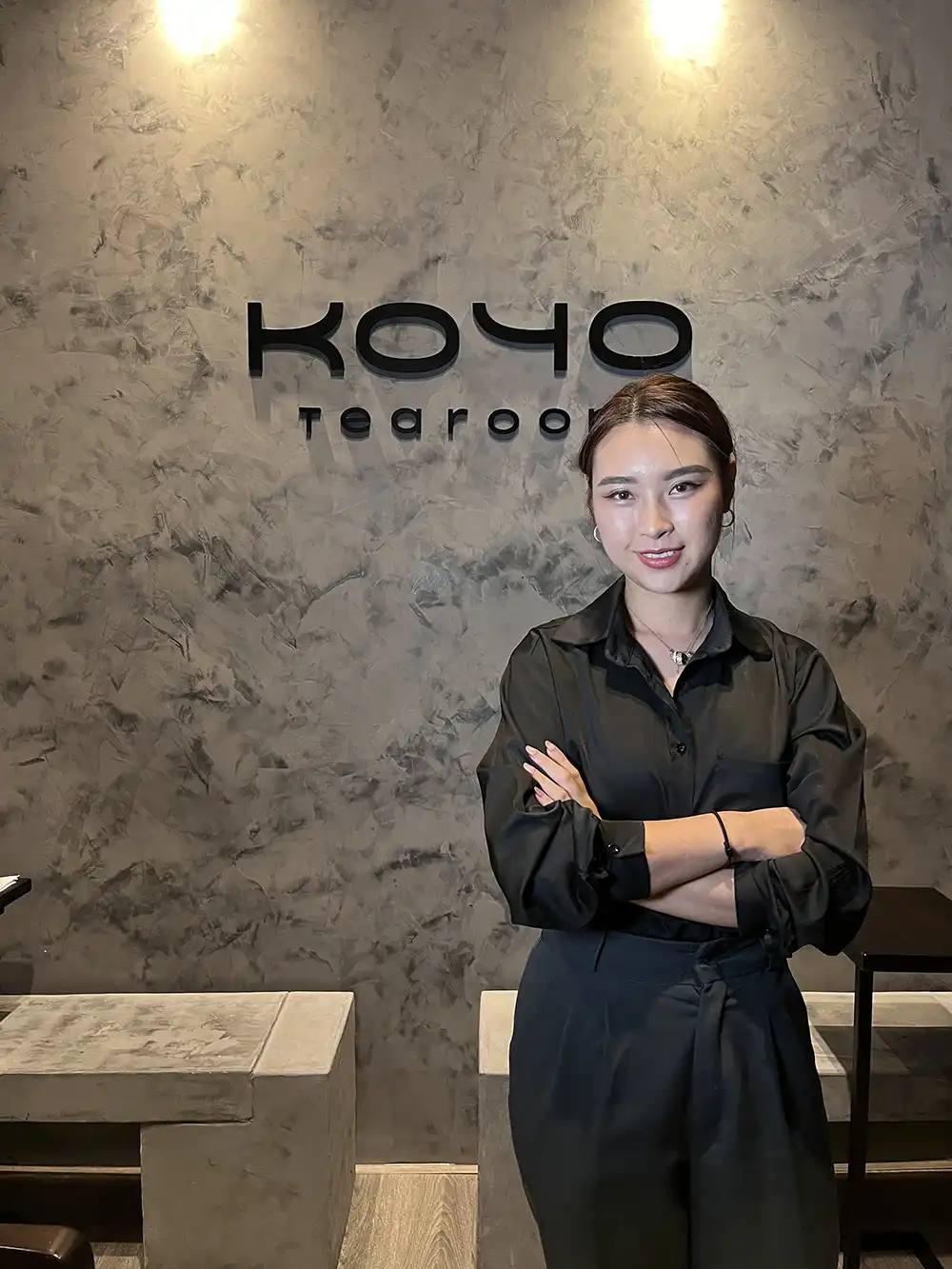ICIC’s National Costume Parade Promotes Respect for Other Cultures
March 15, 2024 2024-03-15 7:34ICIC’s National Costume Parade Promotes Respect for Other Cultures
At first glance, you’d think it’s a United Nations event, what with all the colorful national costumes that the students and lecturers were wearing, but it’s February 28, not October, so this must be something else. Ah, yes, it’s the “National Costumes Parade” organized by the ICIC Ambassadors as part of the Humanities and Language Division’s “Art and Culture Week.”
Soon, the gathering of students and lecturers started on its procession around the ground floor of Aditayathorn Building, passing by 7-11, then the food court, turning left as it reached iStudio and turning left again at the next corner where Café D’Oro is located. The group repeats this a few more times to the accompaniment of pop songs blaring from loudspeakers, the participants chatting and laughing, having a great time.
As the colorful parade halts where it started, I ask a couple of ICIC (Intercultural Studies and Languages major) students about their views of other countries’ national clothes and the importance of understanding and appreciating different cultures.
Ms. Chutimon “Nane” Suetorsak is a junior student in ICIC’s Foreign Language Concentration (Japanese language; she’s also minoring in Chinese language). When asked why she wore the kimono, the Japanese national dress, she replies that she feels “most connected with Japanese culture since I am studying Japanese language.”
Nane, who is also a member of the ICIC Ambassadors, adds, “I have always been interested in Japanese culture because of the anime and media that influence me to dive more into the culture like language and their way of living. Although, there are things I will never understand about Japanese culture, I still respect the culture and their own way of thinking. Other than the serious topics, I simply appreciate and enjoy the various Japanese art forms.”
A senior student, Ms. Jariya “Smile” Changate, who is also from the Foreign Language Concentration, wears a saree to the parade. According to her, “I chose to wear a saree because none of our ICIC Ambassadors are Indian and I feel like this piece of Indian culture should be represented in our event as well. The saree, truthfully, is really hard to wear because of its length and how heavy it is. However, it turned out so gorgeous and complemented me so well!”
Smile, another member of the ICIC Ambassadors, said she is very much interested in Spanish culture that’s why she enrolled in the Spanish program. “I knew some bits of Spanish culture already, but I would love to explore more,” she said.
Another Spanish language student, Ms. Jarupha “Bebee” Huad-upat, wore a Spanish flamenco dress. “I got this dress from a flamenco shop in Madrid, Spain, together with the shoes,” she said. “I chose this costume because I am passionate about it. Flamenco dress allows me to express the feeling of being elegant and confident which is what I love about Spanish culture.”
She said she spent a year studying in Spain. “I got a warm welcome from the people there. I love Spanish culture: The food, performances, language, history, and beautiful destinations.”
Asked why it’s important to learn about other cultures, Smile says, “For me, culture is a very important thing. It represents who we are and somehow shapes us to be like we are! By learning it and embracing it, we can help to keep it alive for the next generation.”
On the other hand, Nane explains why it is important to familiarize yourself with other cultures: “The more you know about other cultures, the more you are able to empathize with and understand each other.”
For Bebee, who is also an ICIC Ambassador, said that in order to live harmoniously in society, “we need to understand each other’s cultures. To understand, appreciate, and respect are the keys elements to live in a society that is full of diversity. If you have these three keys, I believe that there will be less conflict in society.”
Well said. The ICIC students certainly had a grand time dressing up and joining the parade that morning. Ajarn Agnieszka Atthasit, the advisor of the ICIC Ambassadors—a group of student volunteers who help organize their division’s events—said she is proud of the students’ sense of volunteerism.
According to Ajarn Agnieszka, “The National Costumes Parade was an initiative fully led by the students. It provided them with a great opportunity to develop their creativity, management skills, and soft skills. The students’ hard work created a sense of unity and appreciation for the diverse backgrounds that make the MUIC community so special. They also created other engaging activities and games to reflect on the past, present, and future of art and culture. I would like to express my gratitude to all the ambassadors for their hard work and dedication. I look forward to seeing their success in future projects of the Intercultural Studies and Languages program.”
Here’s the list of this academic year’s ICIC Ambassadors:
Ms. Chutimon Suetorsak
Ms. Sasiphat Thanaphodsawee
Ms. Boonsita Apichartviwat
Mr. Karawat Saijanyon
Ms. Waritsara Ausarun
Ms. Leqi Wang
Ms. Nanthaporn Sae-liu
Ms. Kanyapak Khumthienthong
Mr. Pongporn Nawapornchai
Ms. Jarupha Huad-upat
Ms. Papitchaya Wiriyakraikul
Ms. Zoe Morrison
Ms. Jariya Changate
Ms. Yulu Hu
Mr. Korn Jirabunma
Ms. Prada Pattanukul
Ms. Kritpatsorn Wongbulawat
Ms. Ornthipa Sirimeka
***
If you’re interested to learn more about other cultures or learn how to speak in one (or more!) languages, then you should join the Intercultural Studies and Languages Program (ICIC). To learn more about this very major, click here:
